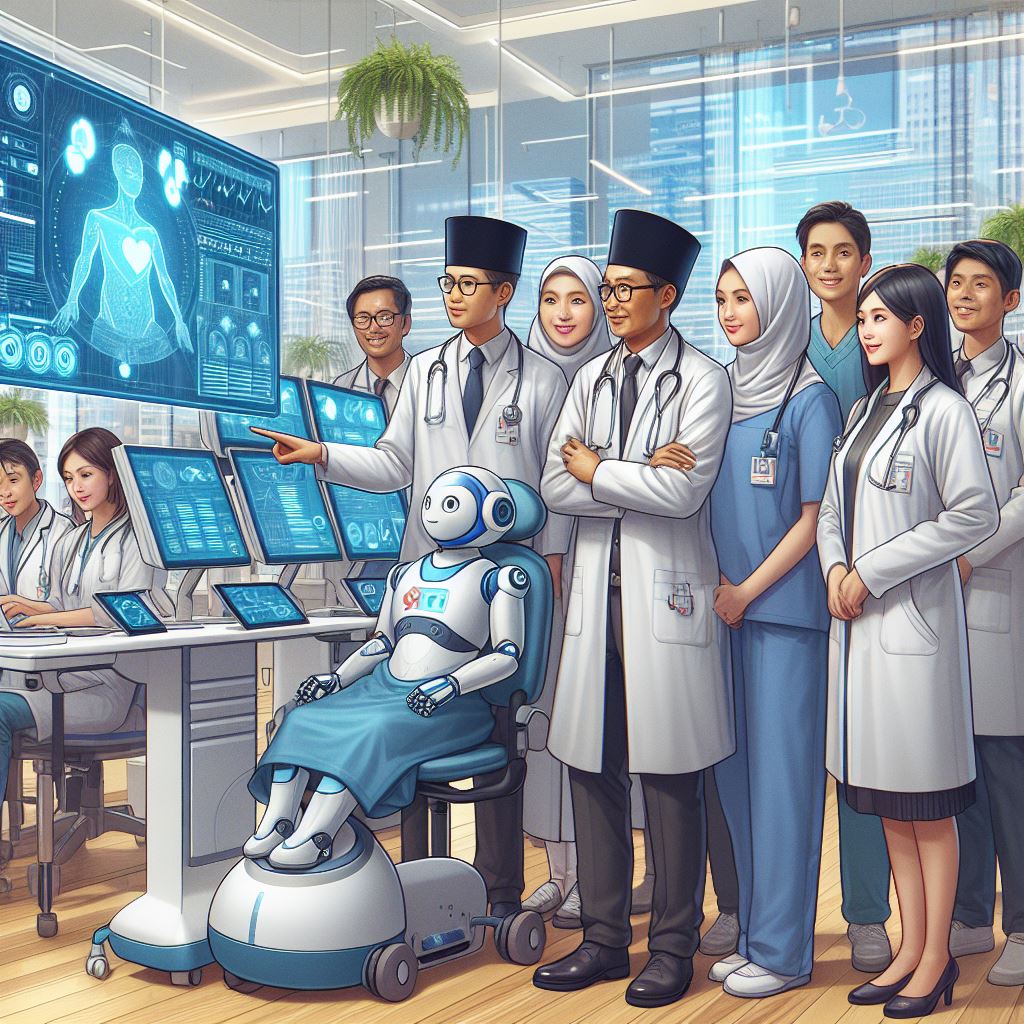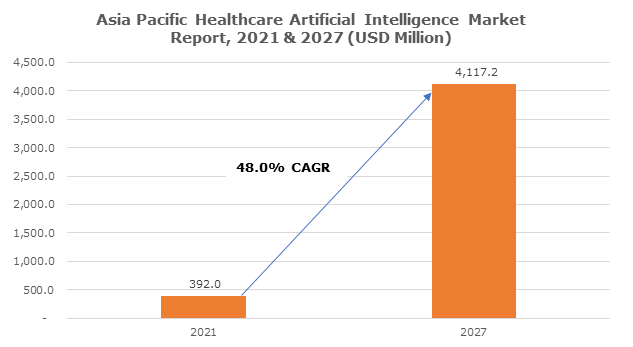
AI’s Rising Influence in Global Healthcare
Artificial intelligence (AI) is making waves in the healthcare industry worldwide. OpenAI’s ChatGPT, an AI language model, astounded the medical community by acing the United States Medical Licensing Exam without specialised training. Google’s Med-PaLM 2 mirrored this success, demonstrating AI’s potential to absorb and apply vast medical knowledge. AI’s power also extends to research, with McMaster University and MIT using it to discover new antibacterial molecules, marking a significant step in the fight against antimicrobial resistance. The East Asian and Pacific region has also seen greater increase in AI employability in healthcare market.

AI and Healthcare in Indonesia: Opportunities and Challenges
Indonesia, with its low physician-to-population ratio, stands to benefit immensely from AI’s potential. AI-powered chatbots, integrated with data from various sources, could enhance healthcare accessibility across the archipelago. The integration of AI with digital health platforms like Halodoc could potentially improve the quality of healthcare services in Indonesia. However, the journey towards AI integration is not without challenges. Bias in AI models, primarily trained on medical literature from high-income countries, is a significant concern. Indonesia must consider this bias when integrating AI with existing digital healthcare services. The use of local data, such as from Halodoc, is crucial for effective AI deployment in Indonesian healthcare.
Addressing Privacy Concerns and the Need for Regulation
Data acquisition for AI model training also raises serious privacy concerns. Despite the enactment of the Personal Data Protection Law in 2022, public unease over sensitive data leaks remains high in Indonesia. The country can learn from South Korea’s model of a centralised, secure, and ethical data-sharing system to build its national AI-based healthcare data ecosystem. The future of AI-enhanced healthcare necessitates a reimagining of healthcare education. Future professionals must be prepared to synergise with AI, requiring the development of AI-focused modules in medical and health curricula. By promoting stringent regulations, prioritising data privacy, and reimagining healthcare education, Indonesia can pave the way for a future where AI and human expertise harmoniously work together.
In conclusion, the integration of AI in healthcare presents a promising future for Indonesia. With careful consideration of potential challenges and the implementation of robust regulations, the country can leverage AI’s potential to improve healthcare accessibility and quality across the archipelago.
